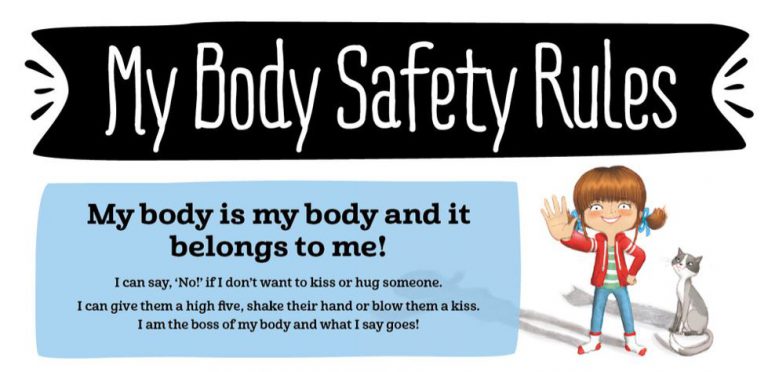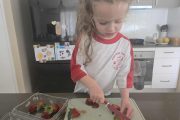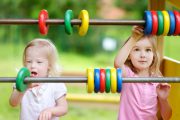Kids Need to Know These 5 Body Safety Rules

Trigger Warning: Sexual Abuse Discussed
Child sex abuse is not something parents want to talk about because it’s horrifying and sickening. All types of abuse are wrong and inexcusable, yet if there was one that many parents fear, it would be sexual abuse towards their children. While researching the frequency of child sexual abuse, Google brings up this heartbreaking fact via Chaucie’s Place.
1 in 5 children are solicited sexually while on the internet. Nearly 70% of all reported sexual assaults (including assaults on adults) occur to children ages 17 and under. The median age for reported child abuse is 9 years old. 85% of child abuse victims never report their abuse.
It makes me sick reading it, let alone writing about it.
The reality is sexual abuse towards children happens more often than we’re aware, and many children don’t report the abuse or know who or where to go when the abuse occurs.
We have to put aside our horror and empower our kids to know the signs of sexual abuse(in ways they can understand) and who they can reach out to should they ever find themselves in such a horrific situation.
If we want to protect our children from predators, we need to teach them about feelings and what’s appropriate behavior from the time they can talk or at least understand their bodies.
Educate2Empower Publishing have created a posted called, “My Body Safety Rules”. The poster offers 5 body safety rules all children should know when it comes to their bodies. The poster has been written in a friendly, non-frightening language so kids can understand and apply the rules to their body.
It empowers children and assists parents in discussing body autonomy, boundaries and sexual abuse prevention. The poster can be downloaded here.
The Five Body Safety Rules are as follows:
1.“My body is my body, and it belongs to me!”
Children need to understand their body belongs to them. They should not be forced to kiss or hug anyone they don’t want to. Even family members. But it’s important to know there is nothing wrong with kissing or hugging those who they wish to do so with – like mum or grandpa. (Health related concerns and medical procedures are exempt, but discussed below)
2. Our kids need to know “I have a Safety Network.”
Children need to know there are certain adults in their life they can go to for any concerns or worries. These adults are people who will listen to them and won’t shame them. Children will know who these adults are intuitively. Let them pick the adults they are most comfortable with. Once chosen, encourage your kids that these are the adults they should talk to if something happens they aren’t comfortable with.
3. Our kids should learn the “Early Warning Signs” of potential abuse or boundaries being violated.
Kids need to know how their body responds when they experience a trauma. It’s important to teach kids the signs of anxiety and feeling uncomfortable. It could be they start to sweat, their cheeks burn up, they feel ‘butterflies’ in their tummy, their heart rate may increase, shaking or heavy breathing. These are important for children to recognise and their feelings are real. If they experience these feelings, they need to share it with their ‘safety network’.
4. Our kids need to know they don’t need to keep secrets.
One of the tactics of a sexual abuser is getting victims to promise what happens in private is a secret. Children can be blackmailed into believing they are doing the wrong thing by sharing what has happened with someone else. It’s so important for kids to understand they don’t need to keep secrets from anyone.
5. Our kids need to learn that private parts are private.
Kids need to know what their private parts are called and they should know this as early as possible. Kids need to know they shouldn’t be ashamed of their private parts and those parts of their body belong to them. No one should touch them on their private part unless it’s a parent cleaning them from a nappy change or toilet accident or a medical professional who is examining for a health concern or procedure with a parent always present. Kids need to know grown-ups are not to touch their private parts nor should they be asked to expose that part to others.
Every rule is an important conversation to have with your child. These conversations empower children about innaproppriate behavior and gives them the tools to reach out if the unthinkable does happen.
If you or a child have experienced sexual abuse, please contact these organisations for assistance or counseling services.
Parentline 1300 30 1300
Kids Helpline 1800 551 800
Bravehearts 1800 272 831
Feel free to download the poster here.















One comment